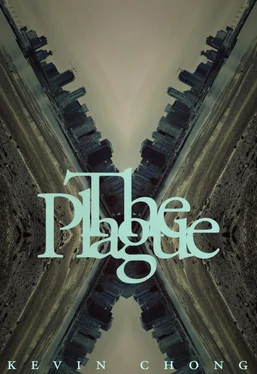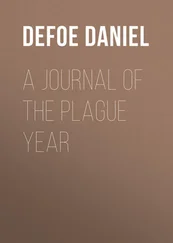Rieux placed his hand on Parson’s forehead. He was feverish.
“You need to go to the hospital,” Rieux told him.
“I will do no such thing,” Parsons answered in his gravelly baritone. “You can drop me off at home.”
Rieux told him to wait as he collected his car and pulled up by the park bench. As the car moved, Parsons slumped against the side window and began to shiver. Rieux insisted on taking him back to his condo.
Mrs Rieux was displeased to see a sick man brought into their home. She fumed outside on her son’s deck, cleaning the gas grill.
Rieux set the mayor up in his own bed. He called Tso and asked her to go to Parsons’ temporary digs and collect his clothes and other personal items. She arrived with Grossman that evening. They each took turns watching Parsons, who waved off requests to speak to any of his estranged family members.
The disease advanced quickly. His cheeks were papery and his cough was severe. Parsons’ forehead was shiny with sweat. At times, he howled like a cornered animal.
“I need you to do me a favour,” Parsons asked Rieux during a lull in the pain. “If I am in too much pain, I want you to kill me. I’m afraid I can’t bear it.”
Rieux said he would. But he said it knowing he was unlikely to carry out the request. Parsons would have to be lucid to agree to medical assistance in dying right before any lethal injection. In his present state, he would probably become delirious, howling for death but unable to give his consent. He would then die in one quaking shudder.
Grossman kept watch over Parsons after he fell asleep. In a supine position, Parsons looked like a handsome mannequin, but he’d aged severely in the past six months.
Mrs Rieux had regained her equilibrium, offering Tso hot water and cookies. She chatted with her briefly before returning to her room to listen to Cantonese opera.
“Your mother reminds me of my own mother,” Tso told Rieux as they sat at his dining room table. “They had different faces, but there are times when I catch your mom from the corner of my eye and see mine. They were built alike. My mother also smelled like sandalwood and wore jade bracelets around her slender wrists.”
Over the past two months, since the Sanitation League had been founded, she and Rieux found themselves exhausted but not willing to be alone (or without the other). Sometimes Grossman or Siddhu would join them. Most of the time it was just the two of them. They walked from Rieux’s apartment to Ken Lum’s East Van Cross or to the Olympic Village. They stopped for tea or a glass of wine. They talked about books, films, TV, travel, food, work, and relationships. In all that time, Rieux never heard Tso refer to her family. He remembered only a passing mention of an aunt. He knew better than to ask her about the subject. She always deflected.
She stared at her hands as she told her story. To Rieux’s ears, it sounded as if she had not told this story often—if at all. It came out in fragments. She backed up a few times in her narrative to correct an earlier point in her account. The following story is an edited, condensed version.
“My mother died when I was six. I only have a few memories of her. In one of them, I’m running toward her on the beach. She’s wearing sunglasses. I fall in the sand and start crying. She picks me up. For many years, I tried to suppress every reminder of her. I had an older brother, too. He was eight. His name was Paul. He had Down’s. He was born in China. I can hardly remember him now.
“My father had come to the United States to do a PhD in physics. My mother arrived in his second year with my brother and studied part-time to be a nurse. First we lived in Pennsylvania where I was born. Then my father dropped out of grad school. He told my mother that another student had made a complaint about stolen research. He claimed that he was falsely accused. The university sided with my father’s colleague because he had more influence. The West was not as different from China as my parents had hoped it would be.
“If I was born with an ability to handle social situations, then it came from my father. He was a great talker. He was confident. I don’t remember anything he said, only the way people gathered around him. He was short so he wore platform shoes. It was his charm that allowed him to get a job as the manager of a seafood restaurant in Flushing, Queens—where we’d moved—without any previous experience in restaurants or as a manager.
“In public, he was the star of any room. In private, he fumed about slights. He imagined my mother was having an affair. He would beat her regularly. He hoped to interrupt her training as a nurse by relocating, but she was able to transfer her credits to a school in New York. He screamed at my brother for having Down’s. He never screamed at me, though. Even when I got between him and the rest of the family, he simply took me by my shoulders and led me to the room I shared with my brother and closed the door on me. Then he’d start to shout again.
“I don’t actually remember any of this—it was all told and retold to me, in bits and pieces, by my mother’s sister—the woman who raised me. I’d blocked it out.
“I don’t remember New York at all. I don’t remember my father losing his job. And I can’t recall the accusations of embezzling from the restaurant. Or the night we left our apartment in Queens with only our clothes and a few photo albums and got into a car. We drove to California in three nights and four days. My father had a friend there who put us up until we found our own place. He had a lead on a job with an import-export company. California is where the memories of my family start. I was nine years old. There was the beach and Disneyland.
“My mother might have left my father in New York if he had chosen any other destination. She had already completed her training as a nurse. She had friends in Queens. But her sister, my Aunt LiLi, lived in Los Angeles. And while my mother would have to learn to drive, she liked the idea of a winter without snow.
“She got a job as a nurse, and my father found work too. We had a nice house with a yard. My father purchased a convertible. My mother started playing Mahjong again. My brother was placed in a special school that he liked. The arguments stopped for a while. But then my father lost his job. He was stealing from work. My mother was planning to leave him. The arguments started again.
“I don’t remember much about my first year without my mother and brother. I know I must have gone to school. I remember the room I had in my aunt’s apartment. I remember a new school where everyone walked around me and talked very slowly. Aunt LiLi worked as a secretary for a Chinese-language church. At night, we knelt at my bed and prayed to God to watch over my mother’s and brother’s souls. She kept photos of my mother and brother in her room, above the dresser. There were no pictures of my family that didn’t also include my father. I hated going into her room because I had to see their faces.
“I just recalled another memory of my mother waiting for my dad to leave the apartment. She asked me to pick out my favourite doll, my favourite dress, and my favourite book. She packed them into a suitcase along with my brother’s action figures. I saw her outside, stowing the suitcase in the trunk of her car.
“Here are other things I have no memory of: the shooting itself. The police coming. Leaving the house that night. The first few days after the shooting. The interview with the police officers and the child therapist. But all of that happened to me.
“My father had forged the signature of his boss to obtain lines of credit that he used to play Blackjack. His boss wanted to see him in jail. My mother may have known this. In his note, he indicated that he would take his entire family away before he could erase the shame of his own life. I have long wondered why he changed his mind. Why did he spare me?
Читать дальше












